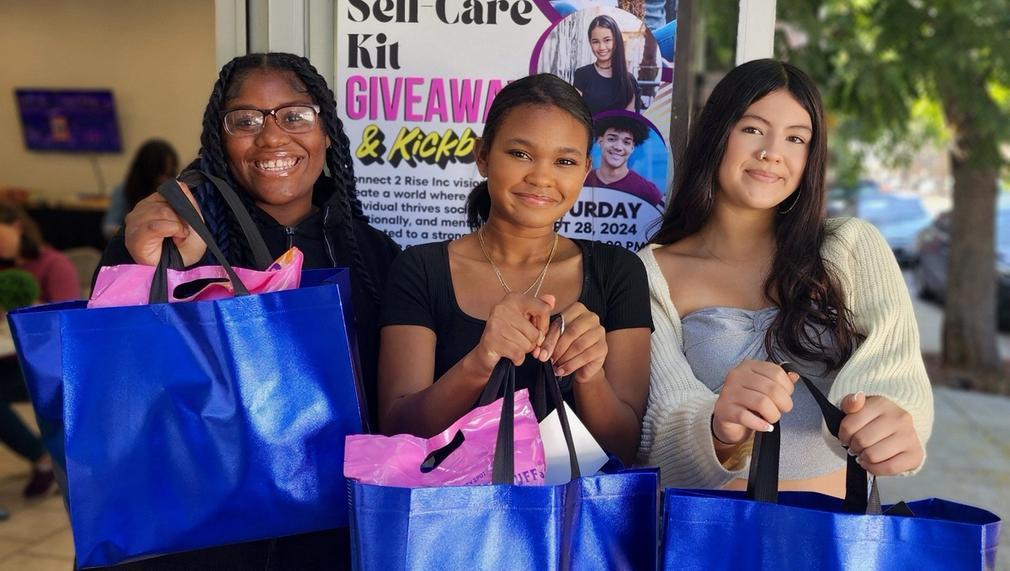First-Gen Journey Initaitive
The First-Gen Journey Initiative helps first-generation first year college students, including those impacted by wildfires, holistically overcome barriers to achieve professional greatness. Our 12-16 month program provides 100 students emergency funding, tech access, life skills training, mentorship, and career prep for successful college-to-career transitions. Goals for first-year students: 90% retention, 3.0+ cumulative GPA, 100% life skills certification, and 85% active campus involvement.

What is the primary issue area that your application will impact?
Youth economic advancement
In which areas of Los Angeles will you be directly working?
County of Los Angeles (select only if your project has a countywide benefit) San Gabriel Valley LAUSD (select only if you have a district-wide partnership) San Fernando Valley West LA Gateway Cities South Bay Long Beach City of Los Angeles (select only if your project has a citywide benefit) Antelope Valley South LA East LA Central LA
In what stage of innovation is this project, program, or initiative?
Expand existing project, program, or initiative (expanding and continuing ongoing, successful work)
What is your understanding of the issue that you are seeking to address?
First-generation college students face significant barriers including lack of financial resources, digital access, life skills, and family guidance. Only 64% of first-gen students are retained compared to 84% of continuing-generation students. The digital divide particularly impacts low-income students who lack devices, internet, and tech skills essential for college success. Many struggle with financial literacy, professional communication, and time management without established support networks. Recent wildfire impacts have created additional displacement, financial hardship, and educational disruption for already vulnerable students. Without comprehensive intervention, these interconnected barriers perpetuate cycles of poverty and limit access to higher-paying careers in the technology-driven economy, ultimately widening income inequality and preventing talented individuals from reaching their full potential.
Describe the project, program, or initiative this grant will support to address the issue.
The First-Gen Journey Initiative is a comprehensive 12-16 month program eliminating digital, financial, and social barriers for first-generation college students through holistic, wraparound support services.
Program Components:
Digital Equity: Laptops, tablets, digital literacy training covering essential online learning platforms
Financial Support: Emergency grants ($500-2,500), financial literacy training, budgeting workshops, textbook vouchers, technology stipends, and living allowances to reduce financial stress
Life Skills Development: Professional communication, time management, workplace etiquette, health and wellness, legal literacy, and leadership training
Mentorship Networks: Academic mentors (faculty/graduate students), career mentors (industry professionals), peer mentors (upperclassmen), and life coaches providing guidance replacing missing family support
Future Skills Academy: Training in coding, data analysis, digital marketing, cybersecurity, and AI literacy for well-paying tech careers
Wildfire Recovery: Emergency housing assistance, flexible program delivery, and counseling support for disaster-impacted students
Target Population: 100 first-generation students annually, prioritizing low-income backgrounds and wildfire-affected students.
Goals: 90% first-year retention, 3.0+ cumulative GPA, 100% life skills certification, 85% campus involvement, with long-term objectives of 75% graduation rates and 25% higher starting salaries compared to regional averages.
Describe how Los Angeles County will be different if your work is successful.
If successful, LA County will experience transformative generational change breaking poverty cycles. Hundreds of first-gen graduates earning 25% higher salaries will contribute $15-20 million annually in increased economic activity, becoming homeowners and entrepreneurs who reinvest locally. These graduates will return as community leaders, mentors, and civic advocates, creating responsive local governance. Most significantly, they'll be first in their families to build wealth, with their children starting from stability rather than survival. Within a decade, LA County will see reduced income inequality, increased college enrollment in underserved communities, and a generation viewing higher education and tech careers as achievable dreams rather than impossible aspirations.
Approximately how many people will be impacted by this project, program, or initiative?
Direct Impact: 100
Indirect Impact: 50